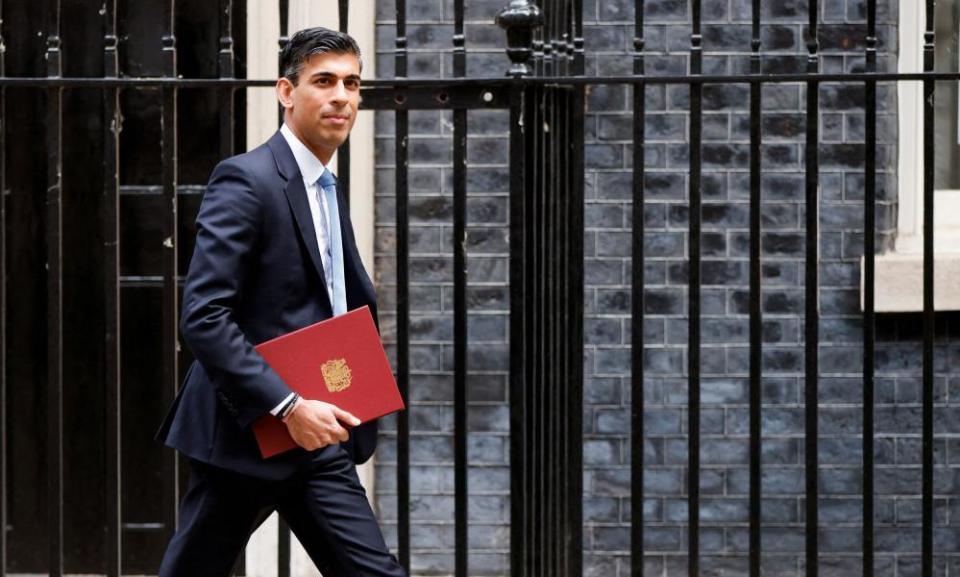Soaring inflation pushes UK borrowing to £14bn in May

Government borrowing was higher than expected in May at £14bn as soaring inflation sent interest payments on the UK’s debt to a monthly record.
The Office for National Statistics (ONS) said debt interest payments leapt 70% on a year ago to £7.6bn, the third highest debt interest payment made by central government in any single month and the highest payment in May on record.
Some economists said the increase in borrowing and the UK’s slowing economy was likely to push government borrowing £20bn higher this year than the Office for Budget Responsibility (OBR), the Treasury’s independent forecaster, expected at its last estimate in March.
Paul Dales, chief UK economist at the consultancy Capital Economics, said: “With the economy weakening and interest rates rising, the public finances will probably perform worse this year than the OBR forecast.”
Samuel Tombs, chief UK economist at Pantheon Macroeconomics, said the extra £14bn spending by the government to protect low-income families and pensioners from inflation would also dent the public finances in the second half of the financial year. “Accordingly, we think that public borrowing will total about £130bn this year, well above the OBR’s £99bn forecast,” he said.
Rishi Sunak said the increase in debt interest made him circumspect about allowing the UK’s spending deficit to rise over the coming years.
The chancellor plans to cut the government’s annual spending deficit more severely over the next four years than many European counterparts to limit the rise in the UK’s debt-to-GDP level to 90%.
He said: “Rising inflation and increasing debt interest costs pose a challenge for the public finances, as they do for family budgets. That is why we are taking a balanced approach – using our fiscal firepower to provide targeted help with the cost of living, while remaining on track to get debt down.”
Borrowing was £4bn less than in May last year, but was still the third-highest May borrowing since monthly records began in 1993 and £8.5bn more than in May 2019, before the pandemic struck.
The ONS said the jump in UK debt interest payments is down to the recent surge in the retail prices index (RPI) measure of inflation, which determines payouts on index-linked gilts.
So far this financial year, debt interest payments have totalled £14.1bn, up £4.7bn year on year, the ONS said.
The consumer prices measure of inflation, which is targeted by the Bank of England, hit a 40-year high of 9.1% in May.

 Yahoo Finance
Yahoo Finance